Two minute review
The Latitude 5430 is Dell’s latest rugged laptop (technically a semi-rugged laptop) that features an all black design with a carbon fiber lid. Due to its design, it looks just as good in the office as it does out in the field and its rigid handle makes it easy to transport despite being heavier than a business laptop or even a mobile workstation.
As this device is intended for large organizations, the military, emergency services and first responders, Dell offers a wide variety of different configurations depending on your needs. You can choose to equip it with a number of extra ports, discrete graphics, a dedicated GPS card, a rubberized keyboard or even a second battery. Even though the Latitude 5430 is built to withstand drops and extreme temperatures, it still has a large 14” 1080p screen and a webcam with a built-in privacy shutter for video conferencing.
While the Latitude 5430 will likely be overkill for most users, businesses looking to equip their field workers with rugged laptops will be pleased with the features on offer and the performance boost from the included 11th Gen Intel processors.
Dell Latitude 5430 : Pricing and availability
The base model of the Latitude 5430 Rugged starts at $1,879 though Dell provides plenty of customization options for those that want additional ports, more memory or storage, a touch-enabled display, a backlit or rubberized keyboard, mobile broadband (4G LTE or 5G), a fingerprint reader, a Smartcard reader or even discrete graphics from Nvidia. Fully specced out with all the bells and whistles, you’re looking at a price of $6,458 at the time of writing though rugged laptops like this one from Dell and other hardware makers are generally purchased by organizations as opposed to individuals.
While a 37 month Mail in Service warranty is included in the price, organizations can choose to upgrade to Basic Onsite Service for $98.69, ProSupport and Next Business Day Onsite Service for $178.17 or ProSupport Plus and Next Business Day Onsite Service for $181.45.
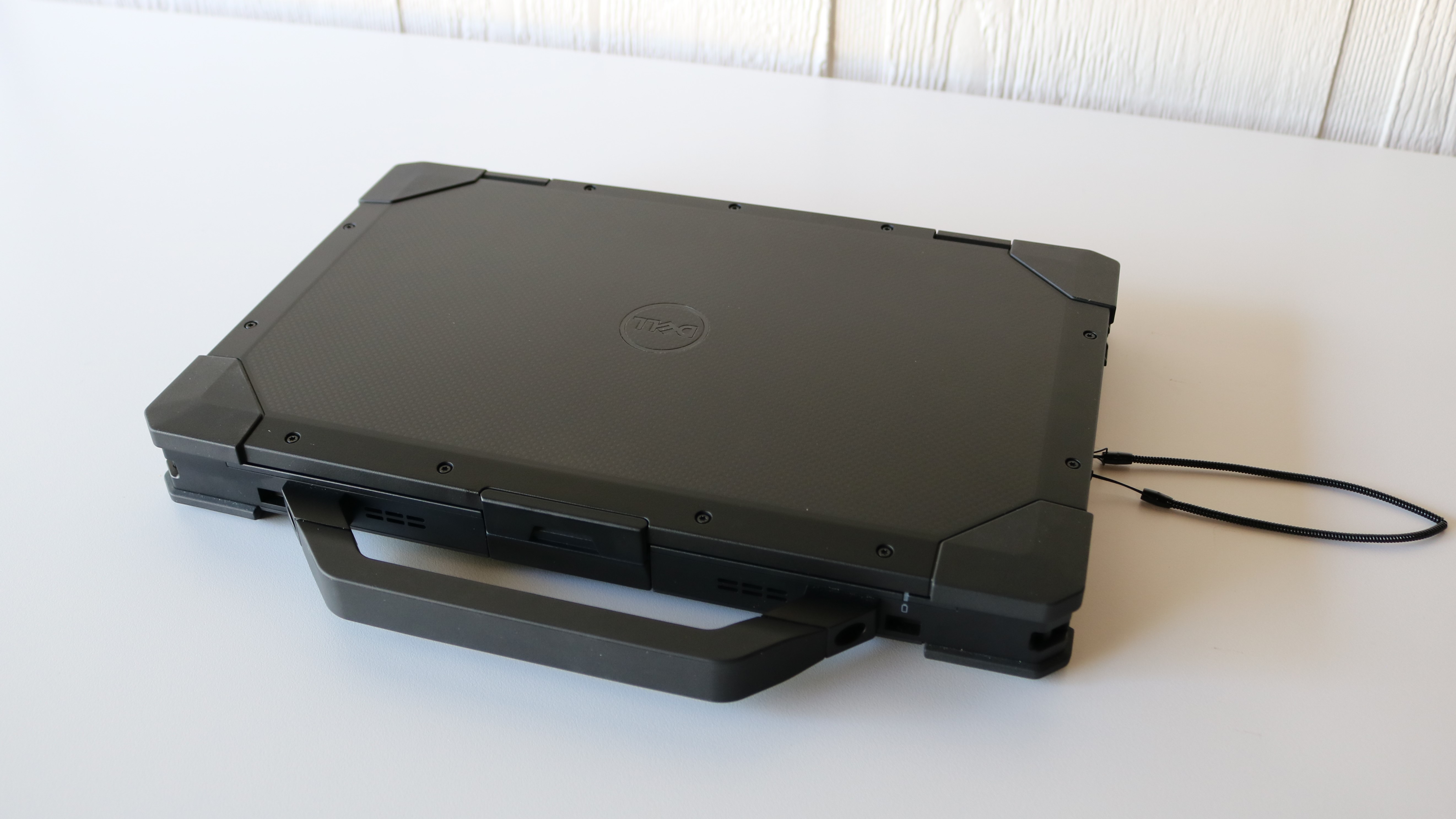
Dell Latitude 5430 : Design
Unlike the rugged laptops of the past that prominently featured aluminum to appear even more rugged, the Latitude 5430 has an all black design with a carbon fiber lid and reinforced corners for additional protection. The device’s rigid handle is right in front of the latch to open its lid but it can also be purchased without one.
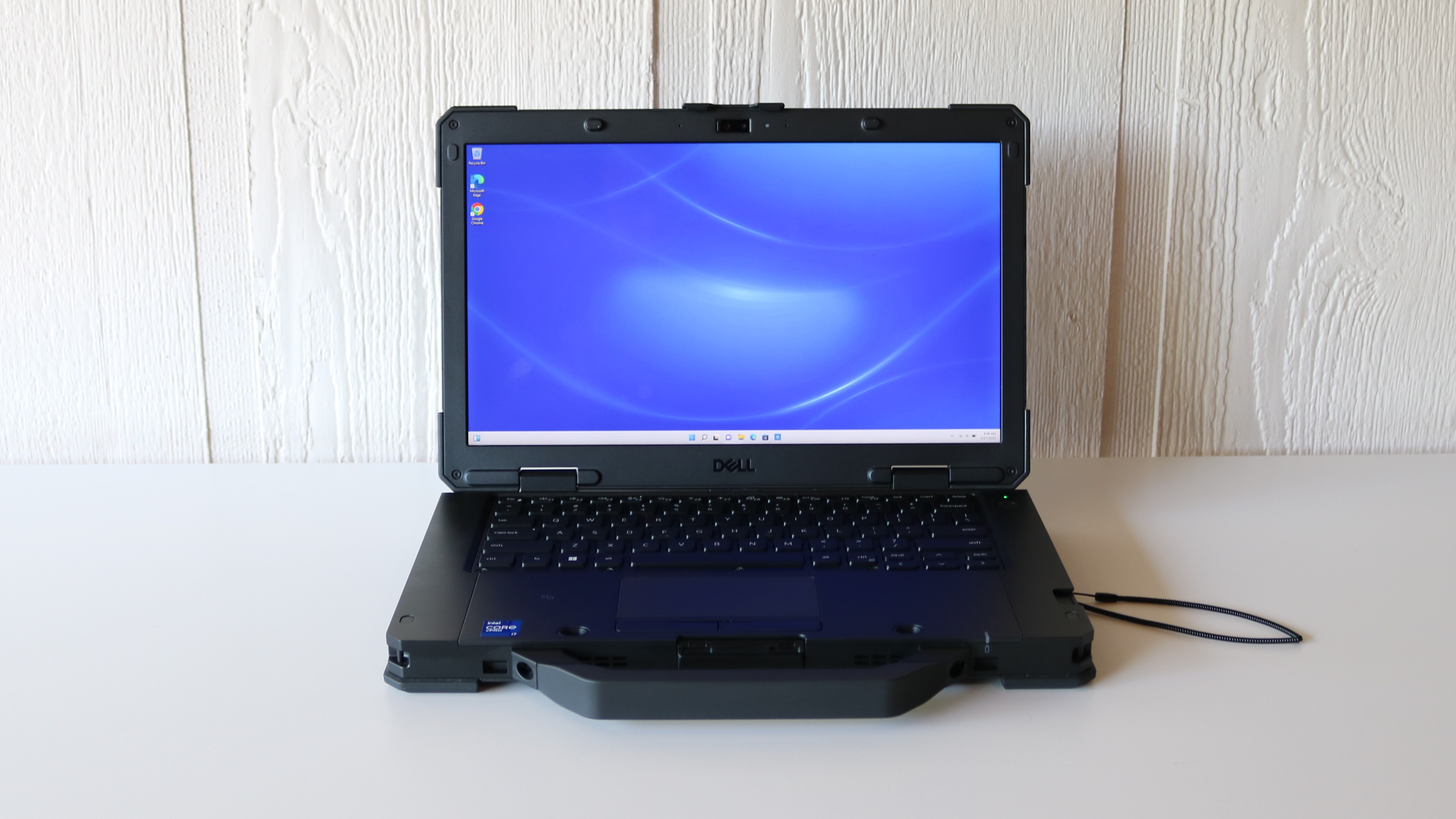
The Latitude 5430 has a 14” 1080p screen that comes in two variations: with touch or non-touch. Even if you don’t plan on using the touchscreen, you may want to consider the upgrade as the touch-enabled display has 1110 nits of brightness and is viewable outdoors thanks to its anti-glare coating. The non-touch display meanwhile only has 400 nits of brightness. Above the display, there is a FHD RGB/IR camera that features a physical privacy shutter but the Latitude 5430 can also be outfitted with a cheaper 720p camera or even without a camera and microphone for those with higher privacy/security requirements.
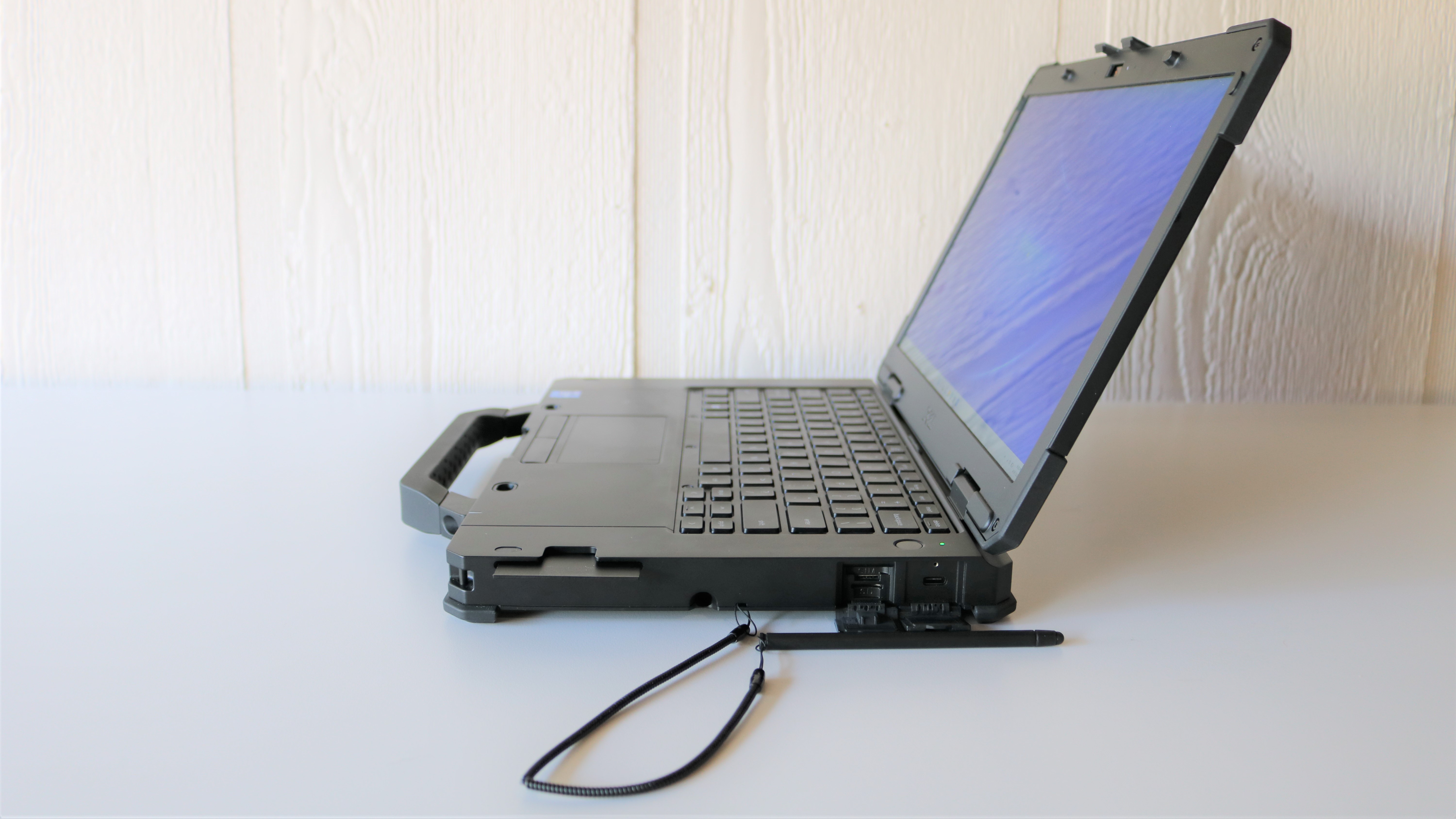
On the right side of the Latitude 5430, there are a number of ports including a smart-card reader slot (optional), a stylus slot (optional), a Thunderbolt 4/USB 3.2 Gen 2 Type-C port with PowerDelivery 3.0 (optional) a nano SIM card slot and a microSD card slot.
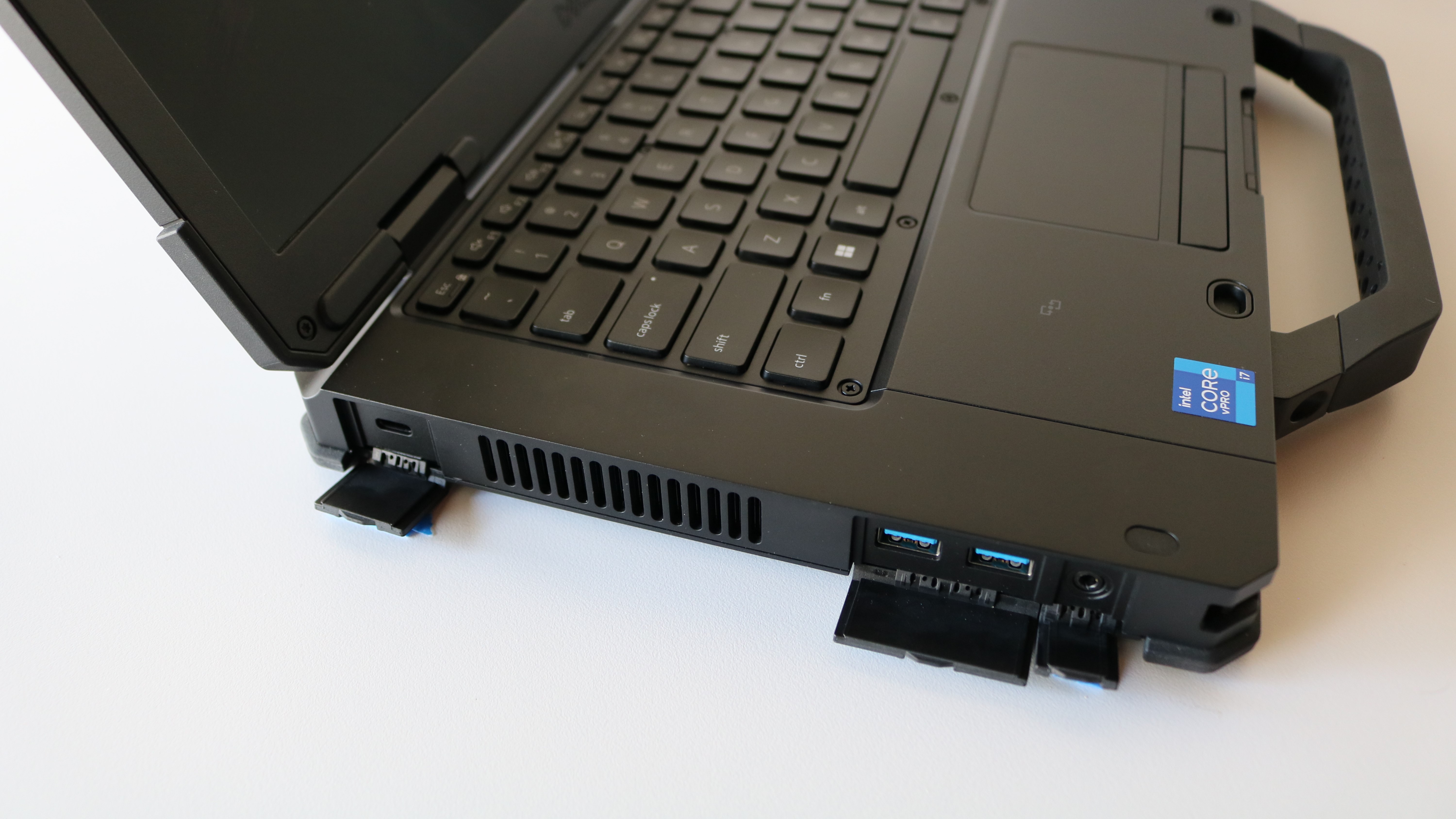
On the left side of the device, there is a headset and microphone combo port, a USB 3.2 Gen 1 port, a USB 3.2 Gen 1 port with PowerShare and another Thunderbolt 4/USB 3.2 Gen 2 Type-C port with Power Delivery 3.0. There’s also a large vent for cooling.
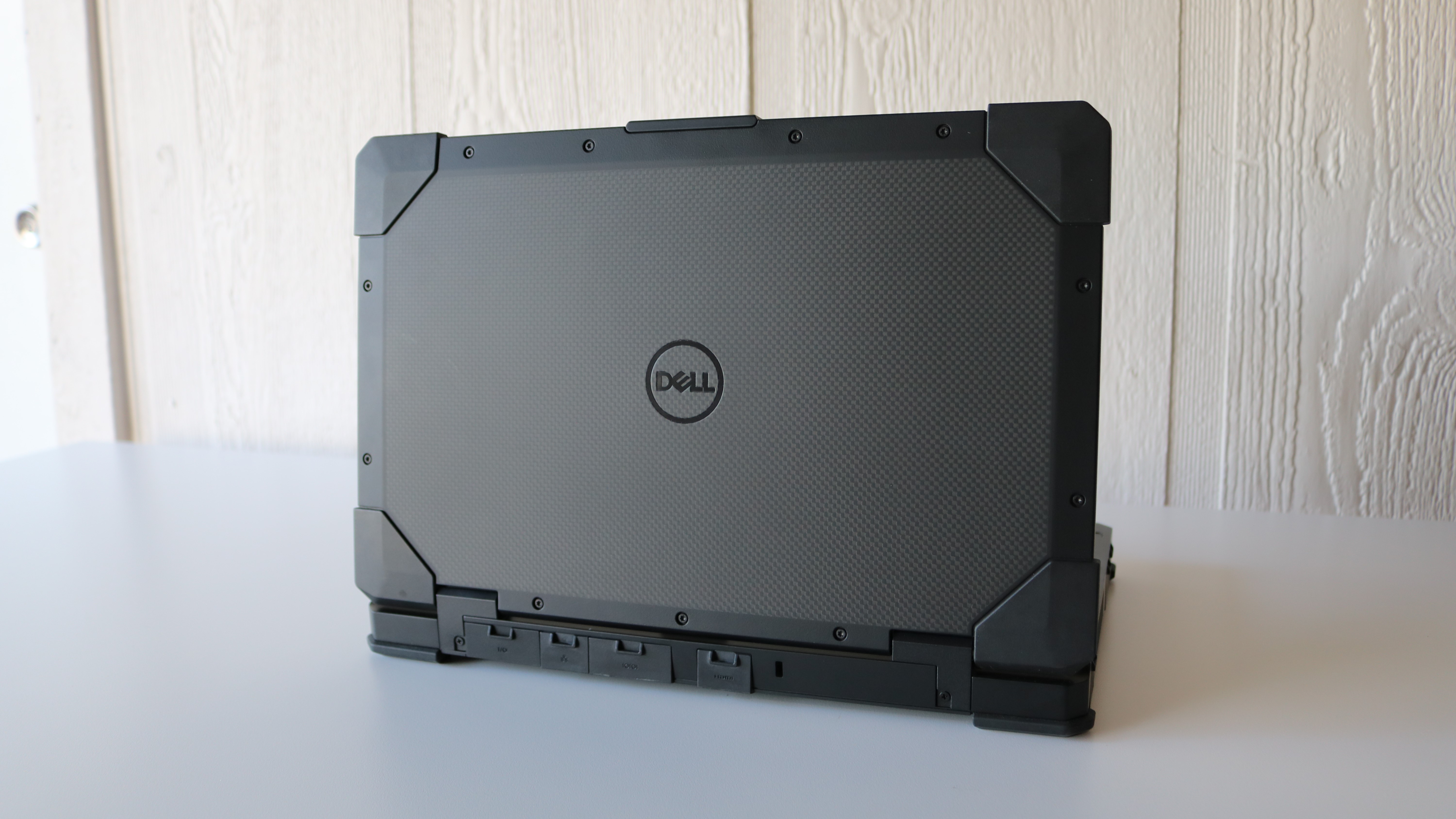
At the rear of the Latitude 5430 there are even more ports under the lid including an HDMI 2.0 port, a RJ45 Ethernet port, a Serial RS-232 port, a Kensington lock slot and an optional I/O bay that can be outfitted with an additional Ethernet port, a RS-232 port, a Fischer USB 3.0 port or a USB-A port.
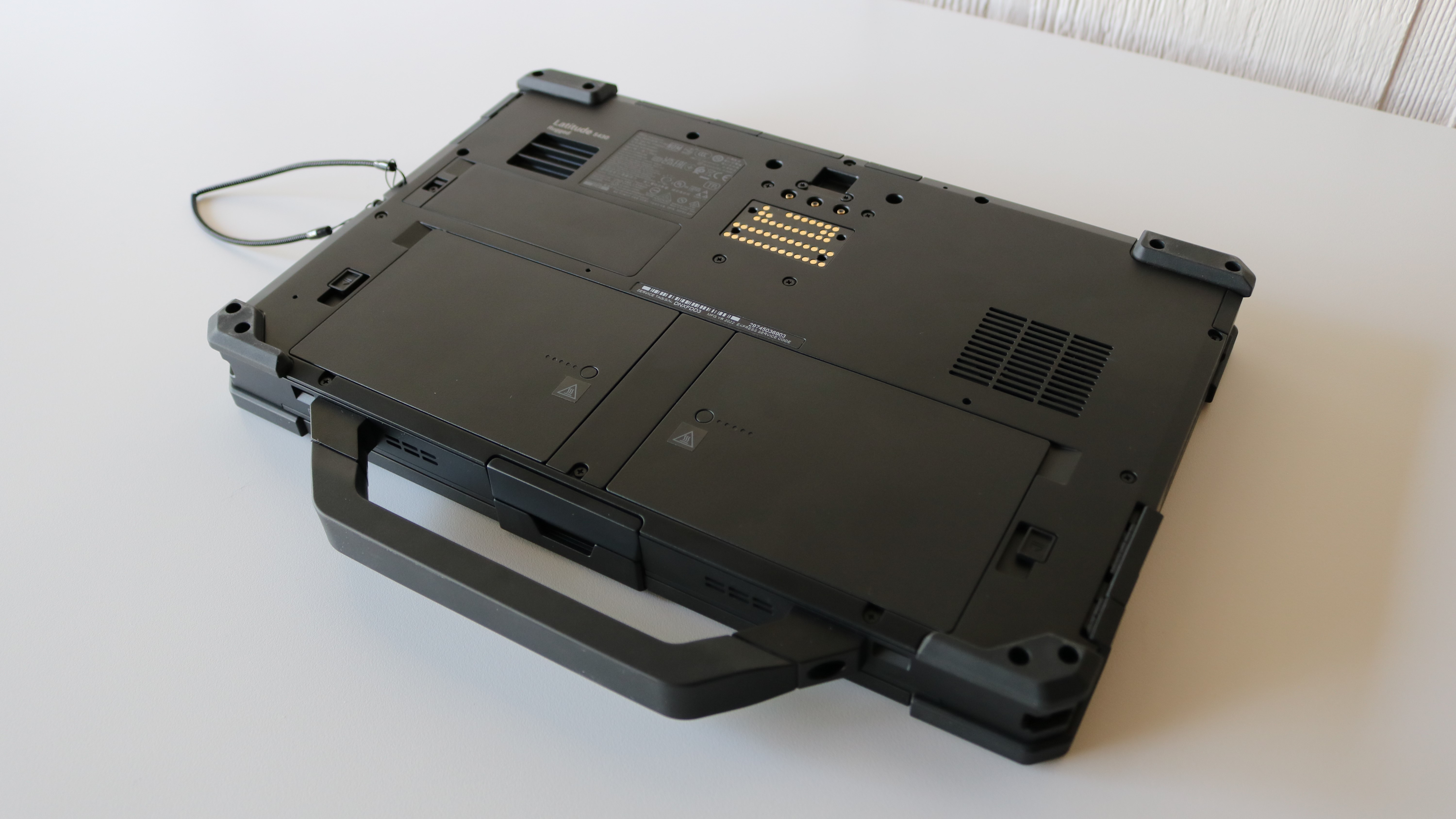
When you flip the Latitude 5430 over, there are two battery compartments equipped with latches that allow you to hot swap batteries, a solid state drive (SSD) door, three radio frequency pass-through connectors and a docking port for those who intend to use the device with a vehicle dock.
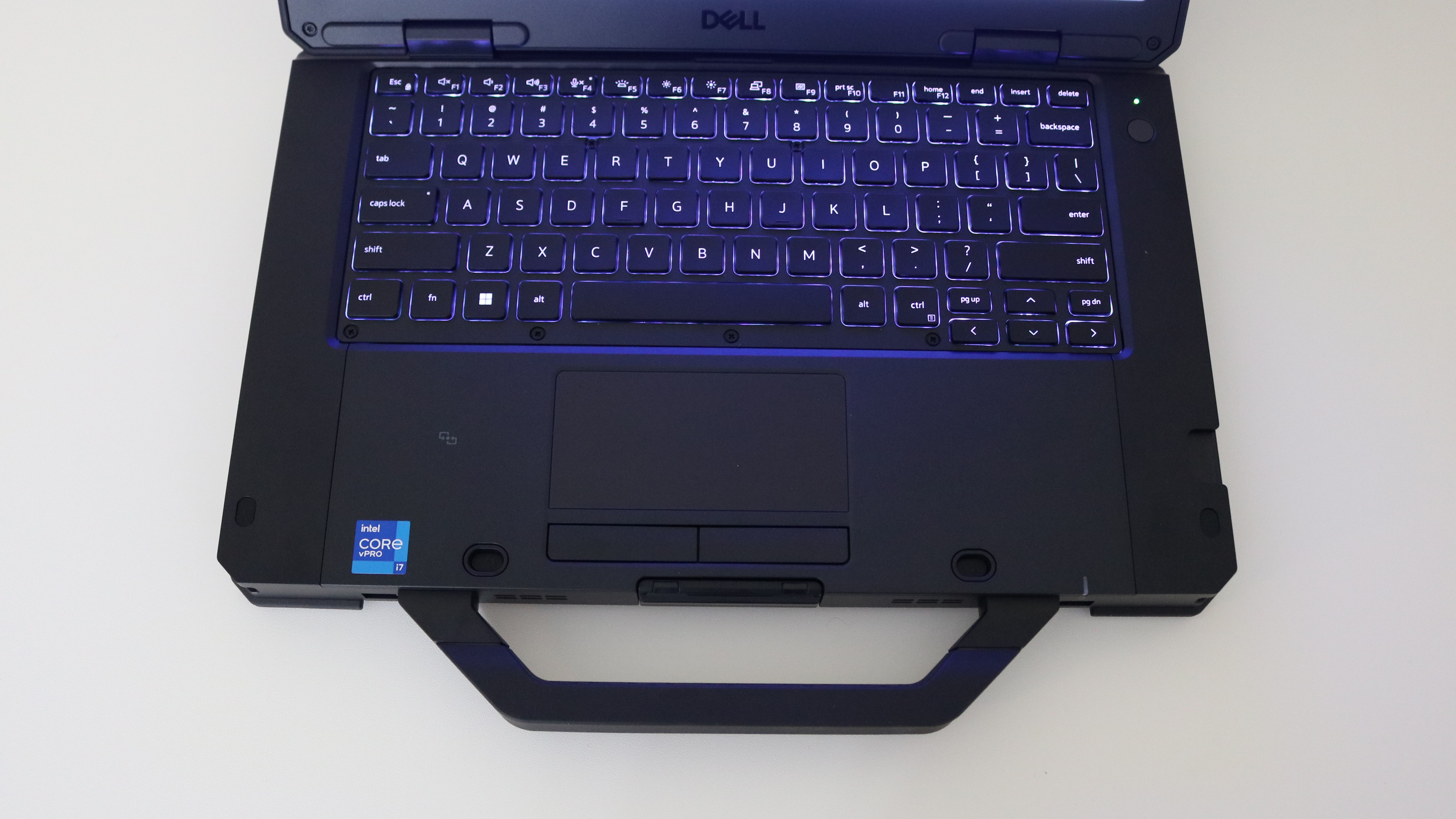
The Latitude 5430 has a backlit keyboard that can easily be taken apart for cleaning by removing the six Phillips head screws that are used to attach it to the device. On the left side next to the touchpad, there is an NFC module that can be used to pair devices like headphones or mice as well as to share documents and other files. The Latitude 5430’s power button is found on the top right and it can also be equipped with an optional fingerprint reader.
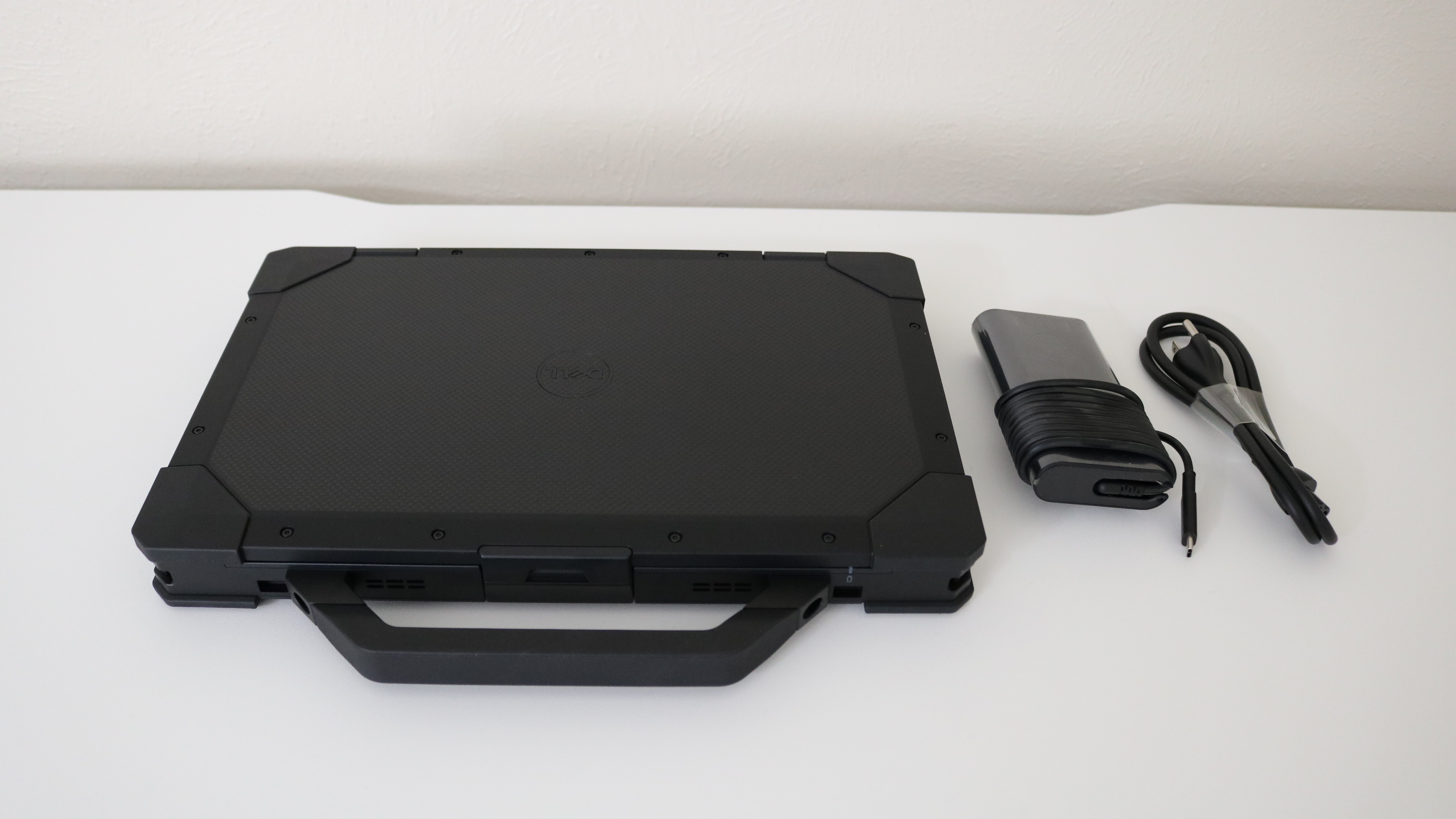
Dell Latitude 5430: Hardware
Dell certainly didn’t skimp out when it comes to the number of hardware configurations available for the Latitude 5430.
The base model comes with an 11th Gen Intel Core i5 processor but you can also choose to equip it with either an 11th Gen Intel Core i5 processor with vPro or an 11th Gen Intel Core i7 processor with vPro. While Windows 11 Pro is included in the base price, you can also opt to run Ubuntu Linux 20.04 LTS instead which shaves a bit off the price.
Here are the full specs of the Latitude 5430 Rugged sent to TechRadar Pro for review:
CPU: 11th Gen Intel Core i7 1185G7 vPro
Graphics: Xe Graphics
RAM: 16GB DDR4 3200 MHz
Screen: 14-inch FHD resolution
Storage: 512GB PM9A1 Samsung Class 40 NVMe SSD
Ports: 2 x USB 3.2 Gen 1, 1 x USB Type-A (optional) 2 x USB-C (Thunderbolt 4), 1 x HDMI 2.0, 1 x Serial RS-232, Ethernet, microSD, nano SIM, audio jack, Kensington lock
Connectivity: Intel AX210, Wi-Fi 6E, Bluetooth 5.2
Weight: 1.97kg (4.35 lbs)
Size: 33.6mm x 340mm x 220mm (H x W x D)
Battery: 53.5Whr
When it comes to memory, the base model features 8GB of DDR4 3200 MHz ram though there are options for 16GB of RAM and all the way up to 64GB. As for storage, the base model of the Latitude 5430 has a 256GB M.2 PCIe NVMe SSD (Class 35) though the top of the line configuration features a 2TB M.2 PCIe SSD (Class 40). There’s also an option for a 512GB SSD (Class 40) that is self-encrypting.
An Intel AX210 network card provides Wi-Fi 6E connectivity with a max speed of 2.4 Gbps and Bluetooth 5.2. The Latitude 5430 can also be equipped with mobile broadband in either 5G or 4G LTE configurations through an eSIM but keep in mind that these are locked to either AT&T, Verizon or T-Mobile. Likewise a dedicated u-blox NEO GPS card can be added to the device for concurrent reception of up to three global navigation satellite systems (GPS, Galileo, GLONASS or BeiDou).
Since rugged laptops are often used by emergency services, the Latitude 5430 is FirstNet Ready through a partnership with AT&T. This gives first responders priority access to fast, reliable and high-capacity LTE.
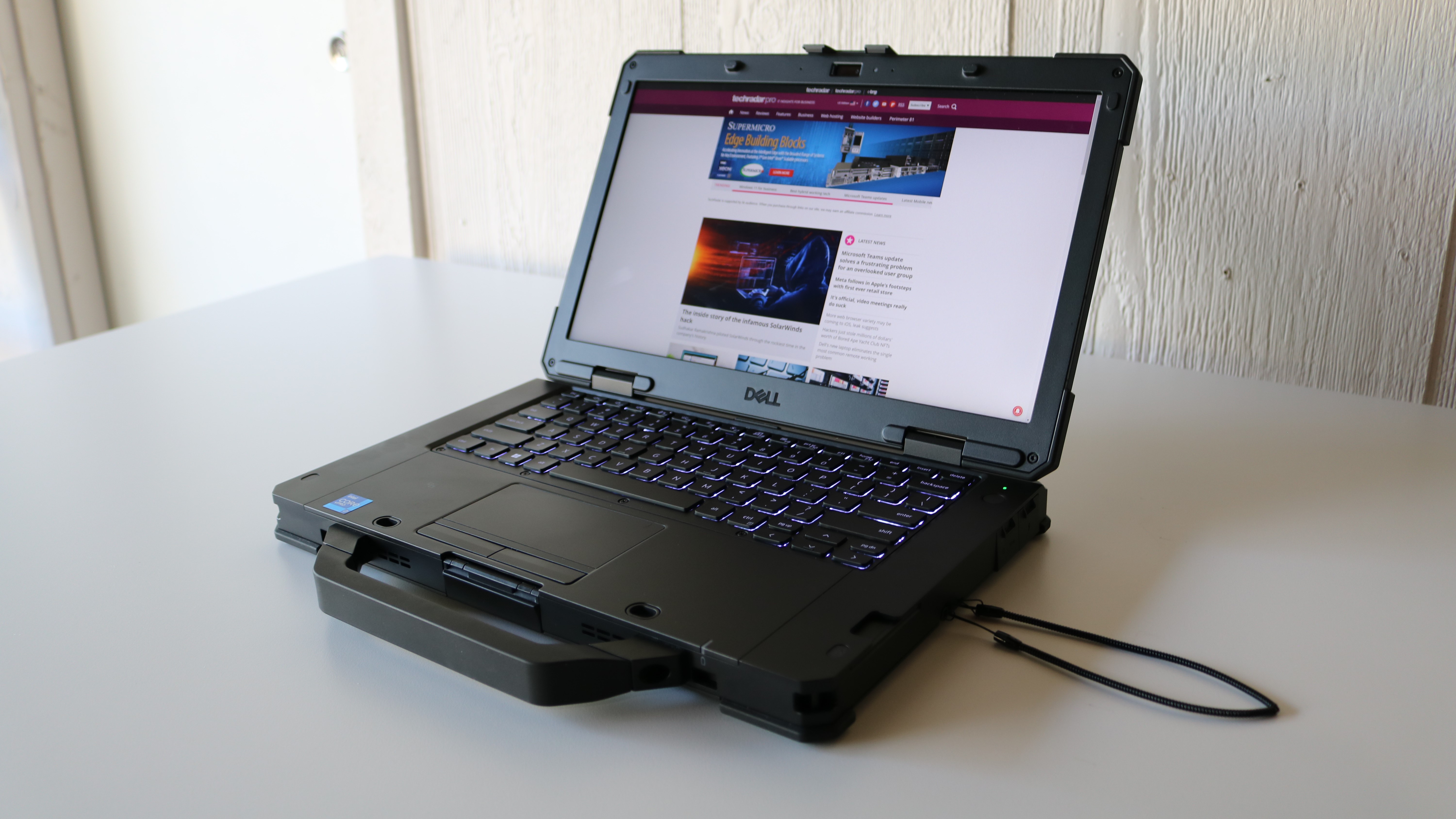
Dell Latitude 5430 : Performance and in use
Here’s how the Latitude 5430 Rugged performed in our suite of benchmark tests:
Passmark: 3398
Passmark CPU: 11477
CPU-Z: 589 (single-thread); 2797(multi-thread)
Geekbench: 15114 (single-core); 4903 (multi-core); 15643 (compute)
3DMark: 1491 (Timespy); 3666 (Firestrike); 13852 (Nightraid)
CrystalDiskMark: 3446Mbps (read); 3379Mbps (write)
Cinebench CPU: 4696 (multi); 1215 (Single)
Novabench: 2015
Atto: 3290 Mbps (read, 256mb); 3090Mbps (write, 256mb)
AJA: 2713 MBps (read); 2597 MBps (write)
Windows Experience Index: 8.1
The Latitude 5430 configuration Dell sent to TechRadar Pro for review came equipped with the top of the line 11th Gen Intel Core i7 processor, a 512GB-Class40-SSD, 16GB of RAM, the touch-enabled display and the full security option which features a fingerprint reader, smartcard reader and a contactless smart card reader. As such, it was no slouch when it came to performance and did well during our benchmarks.
The Latitude 5430 booted up and resumed from sleep quickly (thanks to the included Dell Optimizer software) while being able to handle all of the productivity and collaboration tools we threw at it. Video calls were also crisp thanks to the FHD webcam and the privacy shutter allowed us to hide the camera when not in use. For those that need additional power for more demanding applications, the Latitude 5430 can also be outfitted with a professional grade Nvidia T500 class discrete graphics option.
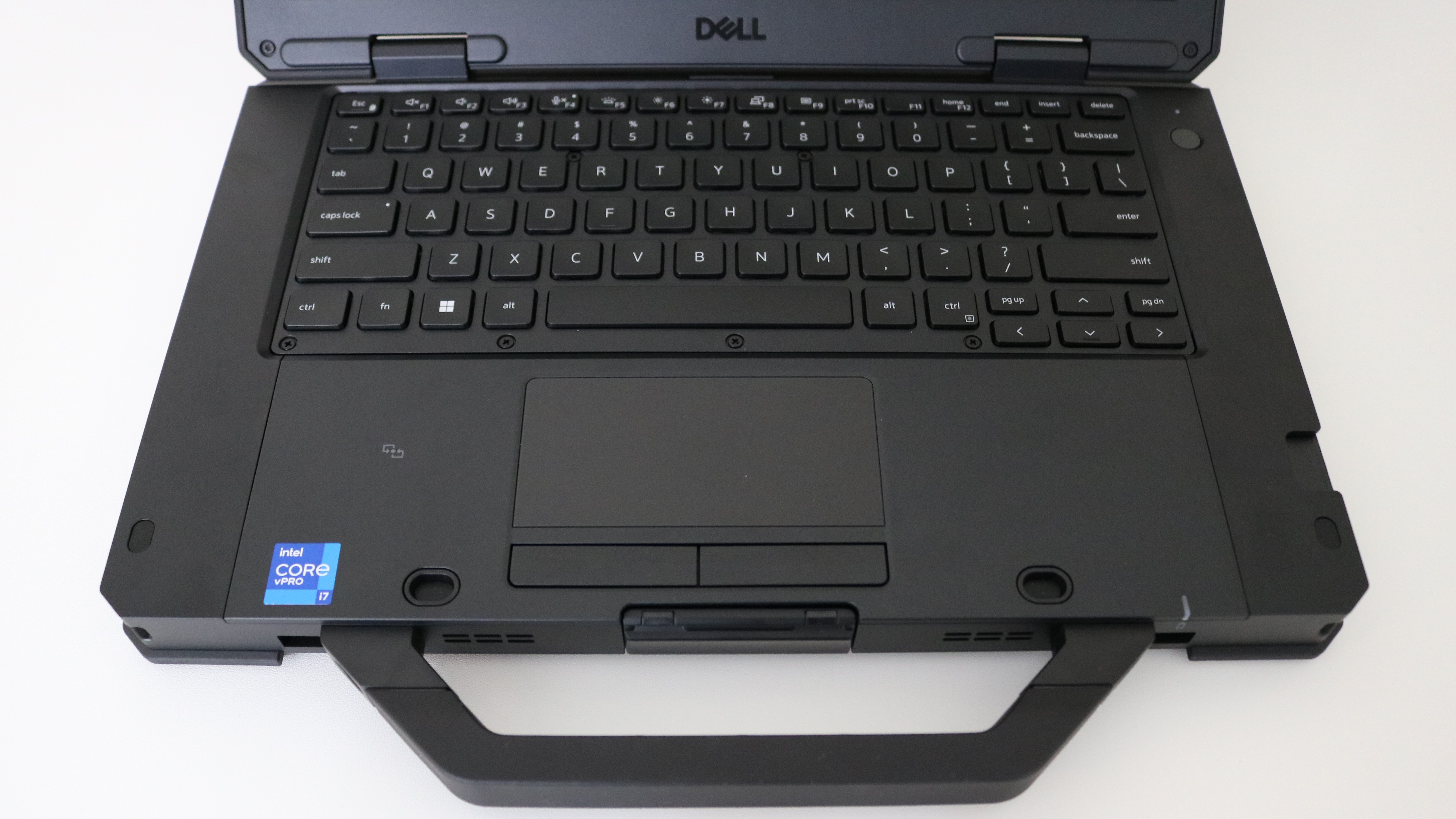
In addition to making the Latitude 5430 easier to carry, we really enjoyed how the placement of the device’s handle allowed us to use it like a palm rest while using the trackpad. The keyboard’s backlight features four levels of brightness that you can alternate between depending on your surroundings and the anti-glare screen makes it possible to use the Latitude 5430 comfortably in direct sunlight. As for the keys themselves, they feature just enough travel while the compact layout of the keyboard makes it easy to reach for whatever key you need. The trackpad is also smooth and responsive which made using gestures in Windows 11 Pro a breeze.
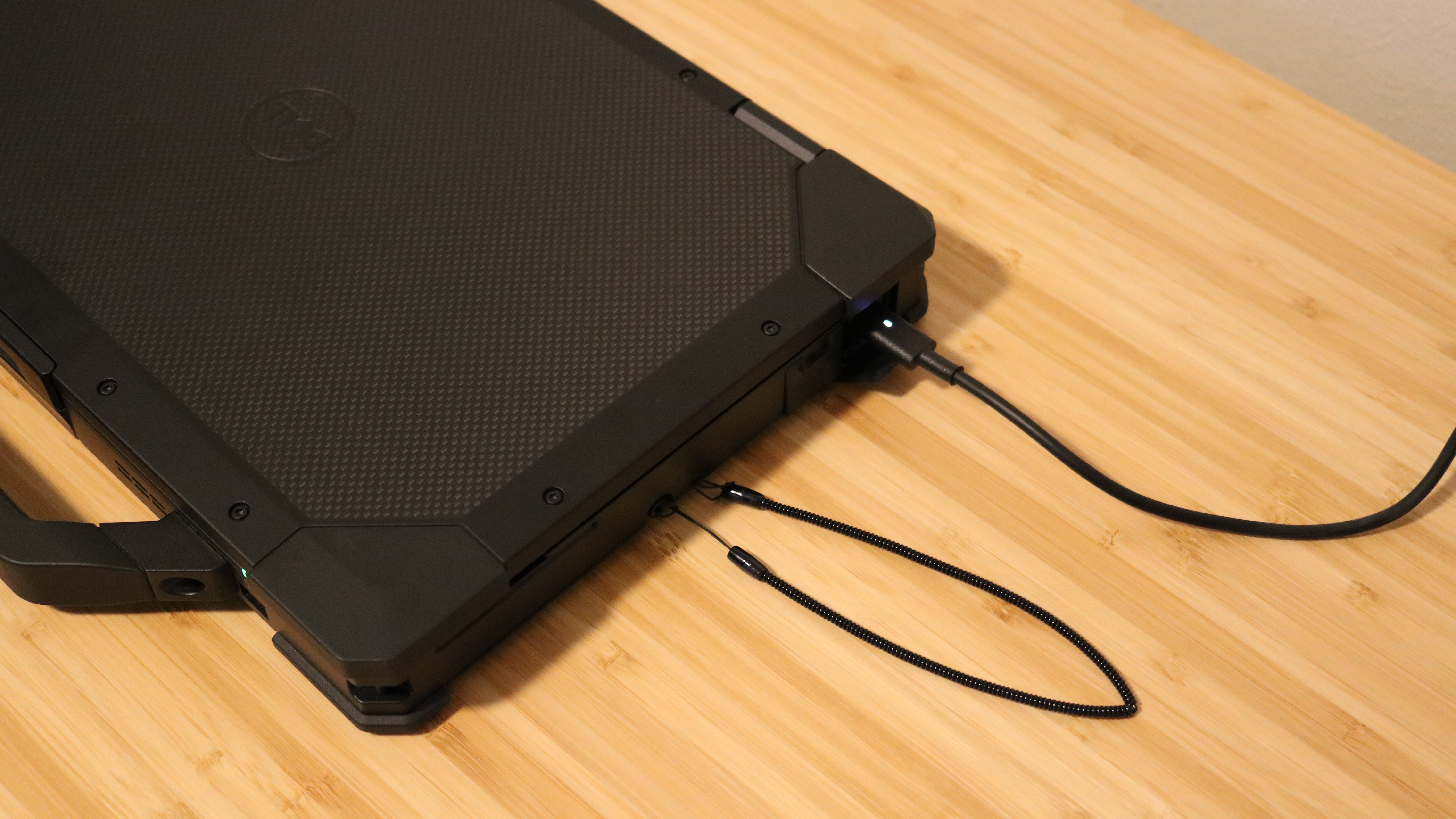
One final addition that really impressed us is the fact that Dell added a small LED to the USB-C charging cable to make it easier to plug in the device in a darkly lit room. Likewise the included stylus that is attached to the Latitude 5430 with a lanyard worked well during testing and the touchscreen can also be used while wearing gloves.
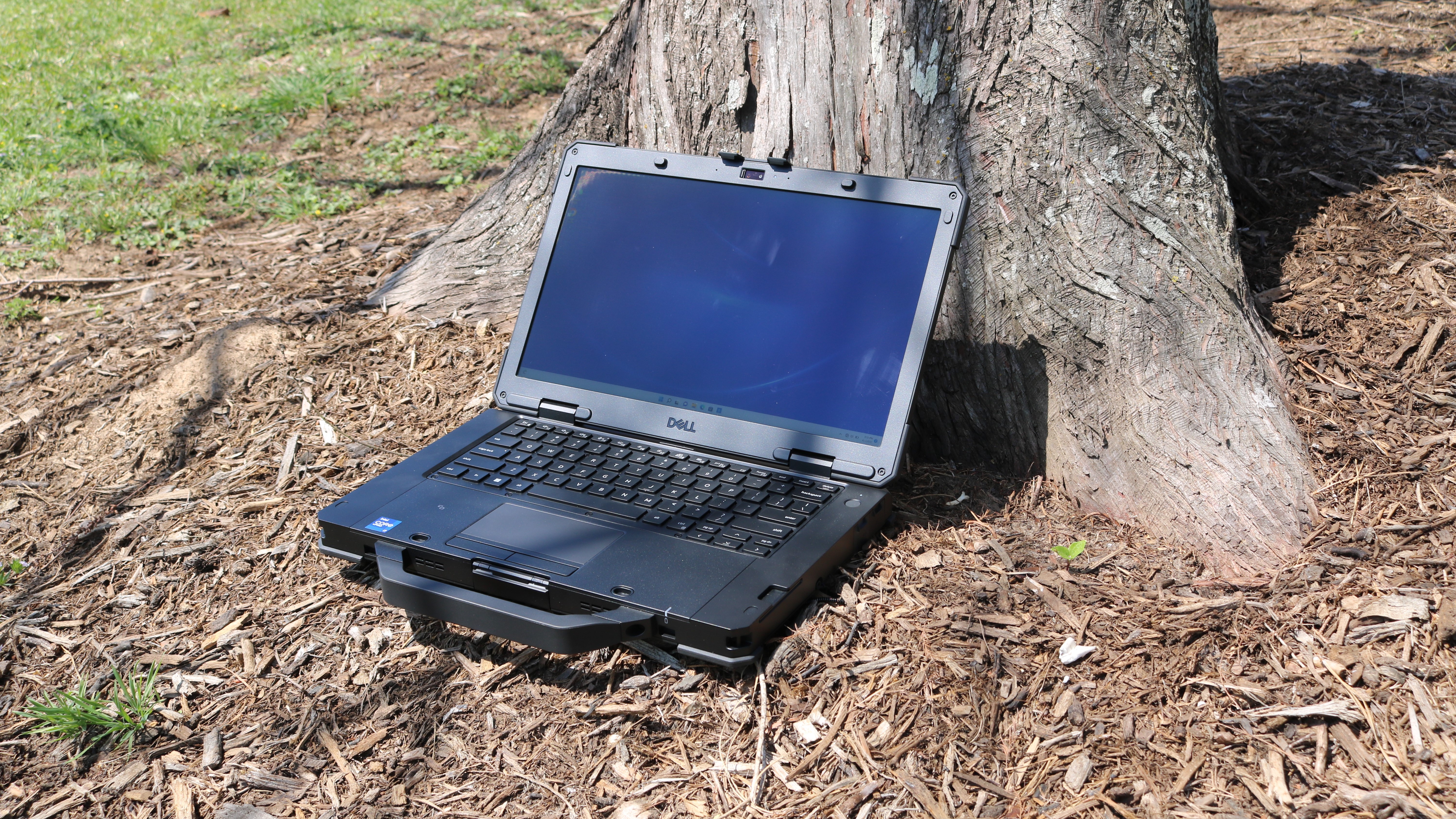
Should I buy the Dell Latitude 5430?
Also consider
For those that like the idea of a rugged laptop but also want the features of a rugged tablet, the Toughbook G2 from Panasonic is a potential alternative to the Latitude 5430. The device can be used on its own as a tablet and when you need more ports and the ability to type, it can be plugged into the company’s optional keyboard dock. The Toughbook G2 is also modular and as such, Panasonic sells a number of user-removable xPAK expansion packs to extend its functionality further. Another good thing about the device is that it is backwards compatible with accessories from its predecessors, the Toughbook G1 and Toughbook 20.
First reviewed: May 2022
from TechRadar - All the latest technology news https://ift.tt/sM7GzaL

No comments:
Post a Comment